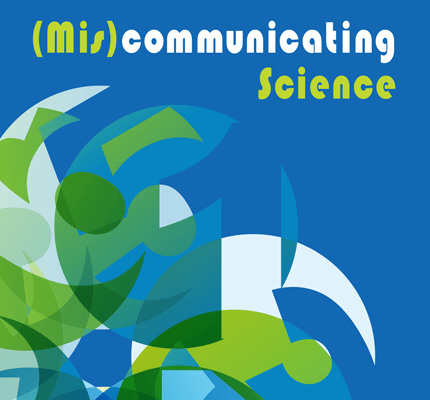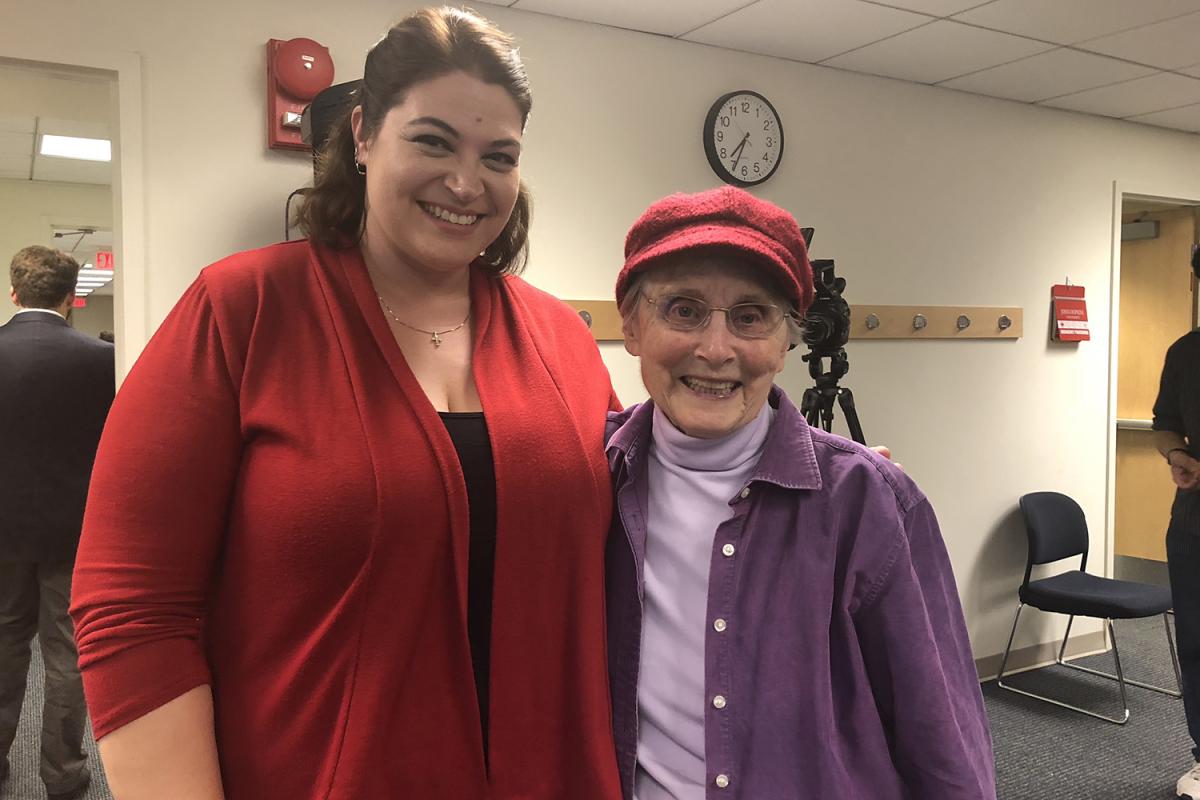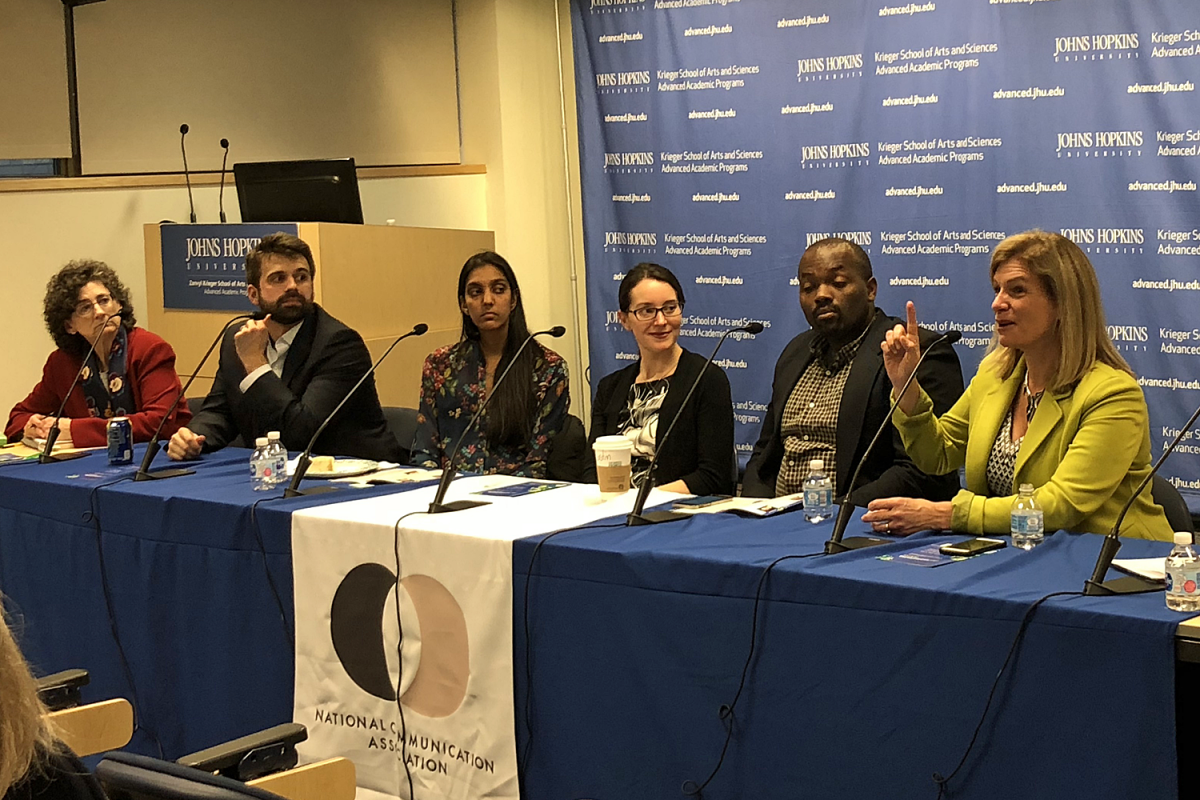
NCA Presents “(Mis)communicating Science” Public Program at Johns Hopkins University in DC
On April 19, nearly 100 people attended “(Mis)communicating Science,” a public program presented by NCA and the Johns Hopkins University’s Masters in Communication Program in Washington, DC. Six panelists discussed the role media plays in spreading misinformation, how scientists can do a better job of communicating their work, and how the public can become more informed by verifying scientific data.
Panelists included Katherine Rowan, Professor of Communication at George Mason University; Laura Lindenfeld, Director of the Alan Alda Center for Communicating Science; Nsikan Akpan, Digital Science Producer for PBS NewsHour; Kasha Patel, Stand-up Comic and Science Writer at NASA; Aaron Huertas, Science Communicator and Political Consultant; and Sheril Kirshenbaum; Executive Director of Science Debate.
The panelists shared stories of misinformation and bad reporting on science stories, and offered prevention tips that might help members of the press avoid having to correct misinformation after the fact.
Akpan kicked off the discussion with a mini quiz about popular science “facts” seen in the news media. “As science journalists, writers, communicators, we’re trying to find easy ways to describe very complicated things,” he said. “And the thing that everyone should remember is, if I use a statistic, or an analogy, you should be immediately skeptical, and go to the source to make sure that it’s right.” Huertas noted that there is also a disconnect between the way policymakers and lawyers construct arguments and the way scientists construct arguments. “So, a lot of the stuff that we see as scientific misinformation is actually someone applying a different set of values to a conversation, and coming up with a different set of facts,” he said.
Lindenfeld sees miscommunication all the time, and she said that during the Alda Center’s training workshops, she often hears from scientists who are afraid to go on camera because they have been misquoted. “Our goal is to prepare scientists. You can’t control everything, but how can you best prepare yourself so that you can have a clear and vivid message that comes across and lands with your respective audience?”
Rowan added another dimension to the conversation by noting that while the media and public get wrapped up with upsetting, everyday things, “we have a tendency not to talk about slow, onset hazards that are getting worse…from dementia to climate change.”
So how can scientists and organizations work to prevent and correct misinformation, and better connect with their myriad publics? Huertas reminded the audience that “when you are sick of communicating your message, that might be the time when it’s finally sticking with your audience,” and recommended a strong in-house communications staff. Lindenfeld works with scientists to use less jargon, to create stories about their work, and to make a connection with their audience. And, Patel said that at NASA, scientists are encouraged to think of a “grabber” that makes it easy to remember their research points and talk about them with journalists. “It takes time for the scientists to do that, but in the long run, it pays off.”
When it comes to the public’s consumption of science news, Akpan warned against trusting news bots and pushed for finding other sources to back up science headlines and factoids, while Rowan urged the public to broaden its news and media diet (such as checking out one of Patel’s comedy shows). Kirshenbaum noted that the public is not turning to experts enough. “When we ask [people] who they trust, they often trust their friends, their mom, or Gwyneth Paltrow,” she said. “[Scientists] talk amongst each other, and it’s on us as well to be better communicators and to earn public trust.”
You can read more of the discussion on Twitter at #NCAConversations.
NCA extends its gratitude to the panelists, to JHU for co-sponsoring and hosting the event, and to the audience, who attended in person and online.
A video of the entire discussion will be available on the NCA website soon.



